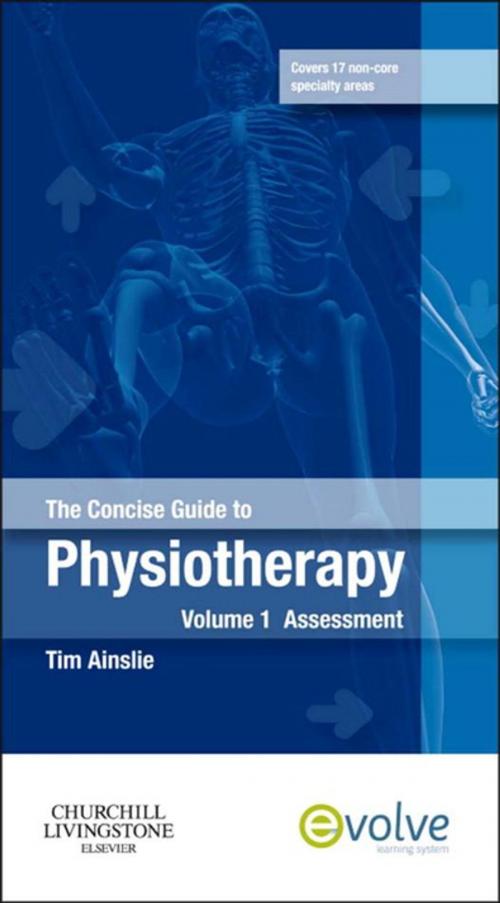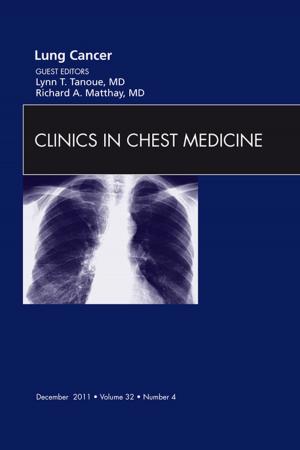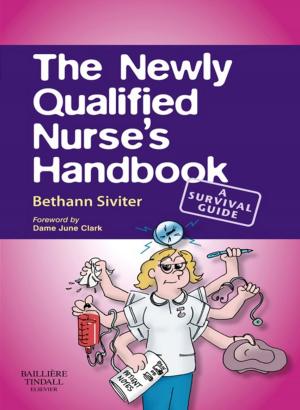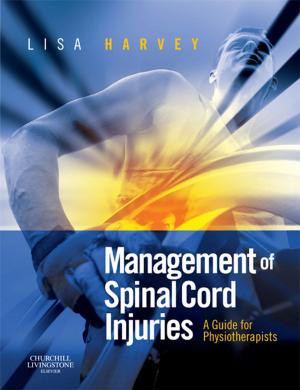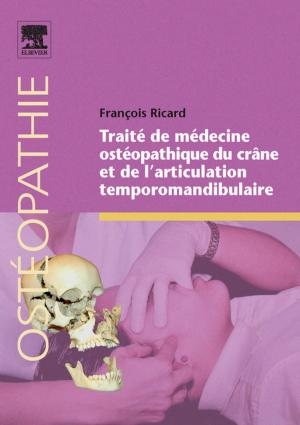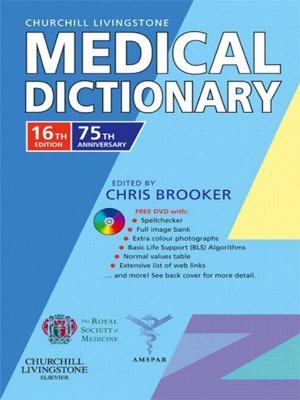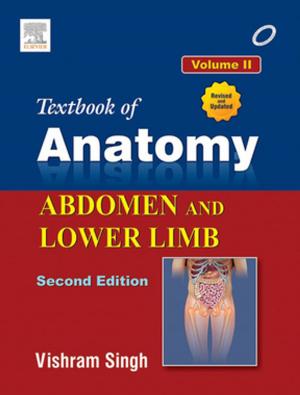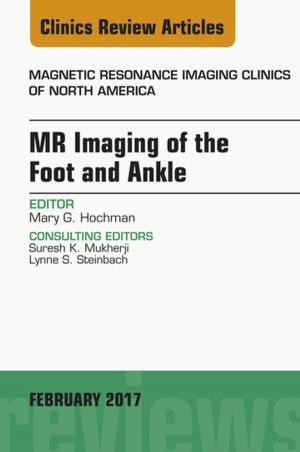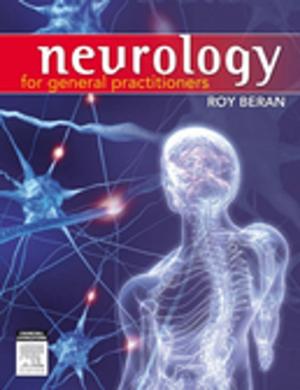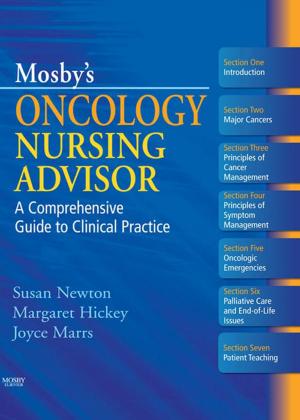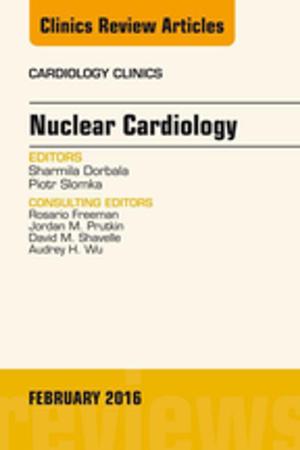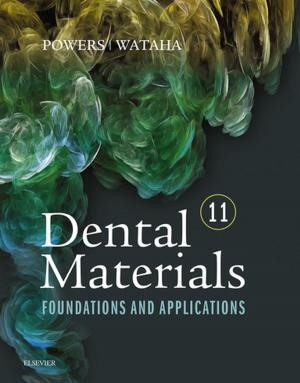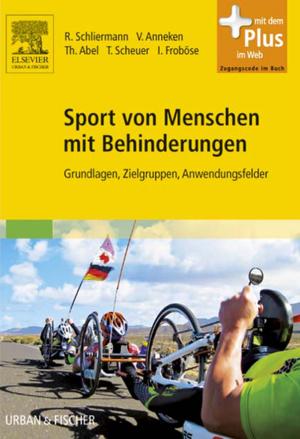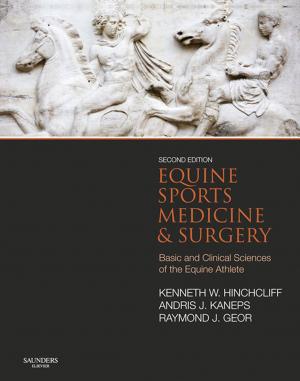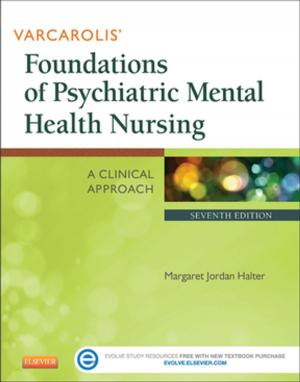The Concise Guide to Physiotherapy - Volume 1 - E-Book
Assessment
Nonfiction, Health & Well Being, Medical, Specialties, Physical Medicine & Rehabilitation, Allied Health Services, Physical Therapy| Author: | Tim Ainslie, MSc, MCSP, MMACP | ISBN: | 9780702052897 |
| Publisher: | Elsevier Health Sciences | Publication: | August 5, 2012 |
| Imprint: | Churchill Livingstone | Language: | English |
| Author: | Tim Ainslie, MSc, MCSP, MMACP |
| ISBN: | 9780702052897 |
| Publisher: | Elsevier Health Sciences |
| Publication: | August 5, 2012 |
| Imprint: | Churchill Livingstone |
| Language: | English |
This exciting new resource is designed to assist undergraduate physiotherapy students and new graduates in confidently assessing patients in a range of physiotherapy specialties outside of the ‘core’ areas of practice. Areas covered include paediatrics, geriatrics, mental health and rheumatology.
Valuable content is easily accessible in a small portable format which will be an invaluable reference during placements or practice. Each chapter provides a concise overview of the philosophy and the specific assessment processes for each of the 17 practice specialties.
A wealth of online learning resources are also available with the Guide, these include access to case studies, multiple-choice questions and a reference list for each chapter. In addition there is a bank of downloadable photographs and line drawings relating to each of the 17 chapters.
Used along with The Concise Guide to Physiotherapy: Volume 2 Treatment, Volume 1 Assessment will be an indispensable tool for any physiotherapist.
A blend of resources providing an insight into the ‘non core’ areas of practice, enabling the individual to prepare ahead or refresh knowledge in order to feel confident about approaching the assessment of patients in practice areas not previously encountered.
- Easy access to nuggets of information on 17 ‘non core’ speciality areas, including burns and plastics, learning disabilities and rehabilitation
- A handy quick reference tool for both students and physiotherapists
- Access to online resources including, reference lists, an image bank, 51 cases studies and over 300 MCQs!
This exciting new resource is designed to assist undergraduate physiotherapy students and new graduates in confidently assessing patients in a range of physiotherapy specialties outside of the ‘core’ areas of practice. Areas covered include paediatrics, geriatrics, mental health and rheumatology.
Valuable content is easily accessible in a small portable format which will be an invaluable reference during placements or practice. Each chapter provides a concise overview of the philosophy and the specific assessment processes for each of the 17 practice specialties.
A wealth of online learning resources are also available with the Guide, these include access to case studies, multiple-choice questions and a reference list for each chapter. In addition there is a bank of downloadable photographs and line drawings relating to each of the 17 chapters.
Used along with The Concise Guide to Physiotherapy: Volume 2 Treatment, Volume 1 Assessment will be an indispensable tool for any physiotherapist.
A blend of resources providing an insight into the ‘non core’ areas of practice, enabling the individual to prepare ahead or refresh knowledge in order to feel confident about approaching the assessment of patients in practice areas not previously encountered.
- Easy access to nuggets of information on 17 ‘non core’ speciality areas, including burns and plastics, learning disabilities and rehabilitation
- A handy quick reference tool for both students and physiotherapists
- Access to online resources including, reference lists, an image bank, 51 cases studies and over 300 MCQs!
